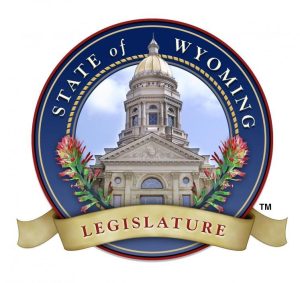Wyoming Legislature Close to Passing Postpartum Medicaid Expansion
Written by Andrew-Rossi on February 28, 2023
Medicaid expansion may be dead and buried, but one enthusiastically supported expansion is a heartbeat away from giving more support to Wyoming mothers and newborns.
Healthy Wyoming is celebrating the ongoing success of House Bill 04 in the 67th Wyoming Legislature. The bill hasn’t been signed yet, but it’s close to becoming a reality and improving healthcare coverage for women in Wyoming.
If passed, House Bill 04 would “temporarily extend Medicaid medical assistance to qualifying pregnant women for twelve (12) months postpartum.”
On Monday, the Senate approved the first reading of House Bill 4, which would provide Medicaid postpartum care for eligible mothers for up to a year. The bill passed its second reading on Tuesday and will be considered on Wednesday for its third and final reading.
Before COVID-19, mothers in the program only received postpartum care for 60 days. Federal funds allowed “Medicaid for Moms” to extend coverage for an additional 10 months, but those extra funds are set to expire in April.

Thirty-six states have already extended their programs to include an additional year of postpartum care.
Gov. Mark Gordon has previously announced his support for “House Bill 4–Medicaid twelve-month extension postpartum coverage.”
“We are grateful that the Senate embraced the spirit of HB4—to support healthy mothers and their babies—and passed the postpartum extension on Committee of the Whole on Monday and advanced it again today,” said Healthy Wyoming Director Ana Marchese. “We’re looking forward to its final reading Wednesday and are delighted that the Senate supported the will of Wyoming voters.”
A number of Senators spoke in favor of HB4 before its initial passage Monday night.
“The one year of postpartum care is the most important period for the mom,” said Sen. Fred Baldwin (R-Kemmerer), chairman of the Senate Labor, Health and Social Services Committee, during floor debate on the bill. He provided an example of why HB4 is needed.
Baldwin, a physician assistant, was one of five GOP male senators to speak in favor of the bill. He said a woman may do fine for the first six months after birth, then suffer a complication that could cause her death.
“Should that happen mostly because she couldn’t afford to come in and keep regular doctor’s appointments?” he asked.
HB4 survived a brief scare Monday, the deadline for bills to be approved in the second chamber. Baldwin made a motion to have the measure brought up for immediate consideration, which narrowly passed, 16-14.
But Senate Majority Floor Leader Larry Hicks (R-Baggs), who controls the chamber’s agenda, immediately made a motion to adjourn. After some confusion, the Senate voted on Hicks’ motion, which was defeated, 16-14. HB4 was the final bill to win approval for the day, which came on a voice vote with supporters drowning out the few opponents.
Before the vote, Baldwin stressed HB4 does not expand Medicaid, an issue that lawmakers have rejected since 2013. “It doesn’t put anyone new on the Medicaid rolls; it just extends the time a mother is covered from 60 days up to a year,” he said.
“The support that these mothers need extends beyond 60 days,” agreed Sen. Dave Kinskey (R-Sheridan). “Sometimes the women who have these unplanned pregnancies have lots of resources, family, and support system; most often not. So I’m in favor of this because I favor life. I want these women to have every reason to carry that child to term.”
Sen. Dan Dockstader (R-Afton) said he has no problem standing in support of mothers and their newborns. “In a perfect world, we have situations where people are helped,” he said. “But it’s not a perfect world.”

Courtesy Unsplash & Hollie Santos
“I’m very pro-life. If you claim to be pro-life, you have no other option but to support this bill,” said Sen. Ed Cooper (R-Ten Sleep).
Sen. Stephan Pappas (R-Cheyenne) said both pro-life and pro-choice individuals should support the program. “The child has been born, and it’s the mothers who are at risk,” he said. “I’ve seen too many women with a lot of postpartum problems, including in my own family.”
Currently, “Medicaid for Moms” covers those who earn less than 154% of the federal poverty line. According to the Wyoming Women’s Foundation’s Self-Sufficiency Calculator, women who earn up to that limit—$28,197 for a mother and baby—do not earn enough to meet their basic needs.
Most low-income moms work in industries that don’t provide health insurance—like retail, daycare, or food service—or they work part-time and don’t qualify for benefits.




